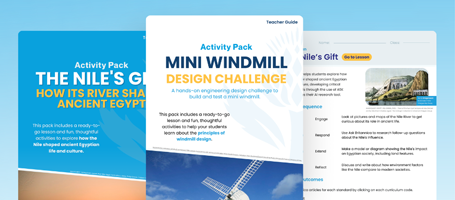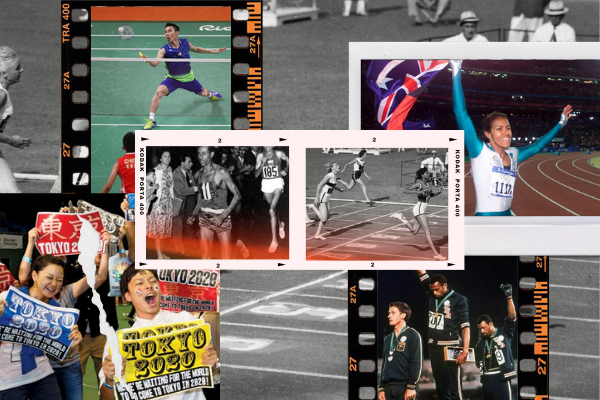Uses photos and images to help students explore key moments from the Olympics through visual learning.
As the most celebrated sporting festival in the world, the Olympic Games is often immortalised through words. For every Olympics, we can always find countless books, news stories and articles written on the subject. But perhaps more importantly, visual texts like photos and videos are also invaluable sources of information. The following activity will help students explore key moments in Olympic history by studying images depicting triumph, loss and sportsmanship.
The Importance of Visual Literacy
Visual Literacy is the way students make meaning from still or moving visual texts. Visual literacy not only improves creative and critical thinking skills, but also nurtures our ability to empathise with others and understand technology.
Nearly 30% of the brain’s cortex is devoted to visual processing and 90% of information transmitted to the brain is visual. With so much of the brain wired to visual processing, it is essential that visual literacy plays a more important role in our teaching and learning.
Making Meaning from a Visual Text
There are three levels that can be used when making meaning from a visual text.
Literal: At this level a student locates information, the answer appears in the image.
Inferential: At this level the student infers information using their previous knowledge to make an inference about the visual text.
Evaluative: At this level the students will hypothesise and evaluate. This will require them to think both critically and creatively.
Image Resource Packs
This Britannica School (Australia) Primary level resource pack ↗ contains a thoughtfully hand-picked collection of captioned images taken from or related to past Olympics. For more advanced learners, a Middle school version↗ of this image pack is also available.
Teacher Tip:
Schools subscribed to the New Zealand or Asia version of Britannica School can also access these image resource packs at:
Britannica School (New Zealand) Primary level resource pack↗
Britannica School (New Zealand) Middle level resource pack↗
Britannica School (Asia) Elementary level resource pack↗
Britannica School (Asia) Middle level resource pack↗
Activity: Capturing the Olymics
Ask students to select a few of their favourite photographs from the resource pack provided and answer the following questions.
Literal
- What is happening in the photograph?
- What do you notice first? Describe what you see.
- What do you notice that you didn’t expect?
- Find something small but interesting.
- Are there any significant symbols pictured? What do they mean? What is their significance to the Olympics?
- Take another look, what do you notice that you didn’t earlier?
- What is going on in the foreground, the middle ground and the background?
- If you were going to describe this work to someone who had never seen it, what adjectives would you use? Why?
Inferential
- What is one word that comes to mind when viewing these photographs?
- Why did you choose that word to describe the photograph?
- What do you want to know more about when you look at it?
- What emotion do you think the athlete is feeling? How can you tell?
- How do you interpret the expressions/gestures?
- Who do you think was the audience for this item? Why?
- What did the photographer want other people to know about this person/object in the photograph?
- What is the photographer trying to communicate? Explain
Evaluative
- What questions do you have about the photograph that you cannot answer through analysing it?
- Where could you go next to answer these questions?
- What biases or stereotypes do you see? Provide evidence to support your conclusions.
- How do the photographs make you feel?
- How do you think the photographers may have intended the audience to react?
- What are your emotions/feelings when you look at this artwork? Which part of the photograph evokes those emotions/feelings?
- Some of the photographs have backgrounds, some people in the photographs are holding objects or wearing specific items of clothing. What might this be telling or showing the audience about the person in the photograph?
Featured Images from Britannica School.
These activities and resources have been created using content from Britannica School, the go-to site for safe, comprehensive student research. Contact your librarian to find out if your institution already has access. Find out more about Britannica School or set up your own free trial.
More Educator Resources
Sign up with your email for more free resources from Britannica.


